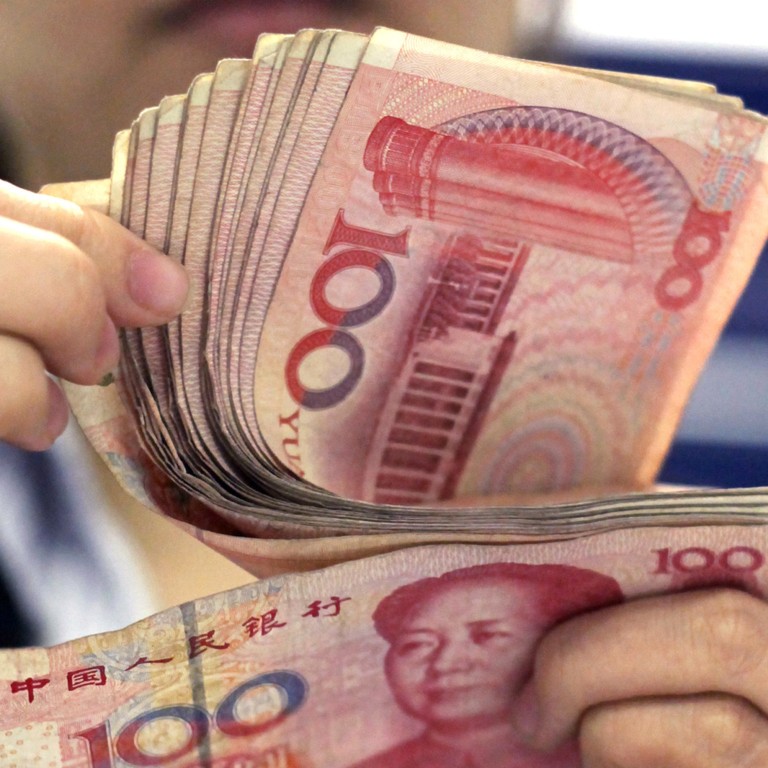
US lifts China’s currency manipulator designation ahead of phase one trade deal
- Treasury removes label in semi-annual report to Congress, saying that yuan has strengthened
- Move means one less obstacle to agreement Washington and Beijing are set to sign this week
The United States on Monday removed the currency manipulator label it imposed on China last summer, in a sign of easing tensions between the two economic powers after nearly two years of conflict.
Just two days before President Donald Trump is set to sign a phase one trade agreement with China, the US Treasury said in its semi-annual report to Congress that the yuan has strengthened and Beijing is no longer considered a currency manipulator.
Although the Treasury refrained from slapping the label on China in its report last May, Trump in August angrily accused Beijing of weakening its currency “to steal our business and factories”, restating a long-standing grievance.
Chinese authorities in August allowed the yuan to fall below 7 to the dollar for the first time in a decade, sending shudders through stock markets at the time and stoking Trump’s ire.
“Over the summer, China took concrete steps to devalue its currency,” the yuan or renminbi (RMB), and those moves “left the RMB at its weakest level against the dollar in over 11 years,” the Treasury said.
However, it more recently was strengthened to 6.93 to the dollar and the Treasury said the trade pact addresses currency issues.
“In this agreement, China has made enforceable commitments to refrain from competitive devaluation and not target its exchange rate for competitive purposes,” Treasury Secretary Steven Mnuchin said in a statement.
However that commitment is identical to the one Beijing has long made as part of the Group of 20 major global economies.
Though the semi-annual currency report always gains attention as a key sign of relations between the powers, the currency manipulator designation was largely symbolic.
The label calls for the US Treasury committed to work with the International Monetary Fund to “eliminate the unfair competitive advantage” created by China’s alleged actions and to consult with Beijing about the matter.
However, many economists questioned the decision to label China a manipulator.
“China shouldn’t have been designated to start with. Small current account surplus/GDP; scant intervention,” Mark Sobel, a former Treasury official, said on Twitter. While he acknowledged the large trade surplus, he said “economists disregard those”.
“RMB fell in response to Trump’s tariffs. Designation was blatant/errant political act,” Sobel tweeted.
Taiwan keen to avoid currency manipulator tag by reducing US trade surplus
As part of the trade deal “China has also agreed to publish relevant information related to exchange rates and external balances”.
Mnuchin said the phase one deal is significant and “will lead to greater economic growth and opportunity for American workers and businesses”.
However, the Treasury said Beijing still needs to take steps “to stimulate domestic demand and reduce the Chinese economy’s reliance on investment and exports.”
Top Chinese trade envoy Liu He arrived Monday in Washington on Monday ahead of Wednesday’s expected signing of the agreement.
After multiple rounds of tariffs, the US trade deficit in goods through November 2019 was running at over US$320 billion, which is about US$62 billion below the same period of 2018.
US-China deal will provide swift enforcement, says White House trade adviser
“Treasury remains disturbed by the persistent and excessive trade and current account imbalances that mark the global economy,” the report said.
The US Trade Representative’s Office announced over the weekend that as part of the initial trade deal, Washington and Beijing will hold “at least biannual” meetings – something that previous administrations did for years but that Trump scrapped in favour of a more aggressive approach.
Mnuchin and Federal Reserve Governor Jerome Powell are also will conduct macroeconomic meetings with top Chinese officials “on a regular basis”, USTR said.
The currency report had eight other countries on the “monitoring list” due to concerns about their currency practices: Germany, Ireland, Italy, Japan, South Korea, Malaysia, Singapore, Switzerland, and Vietnam.

